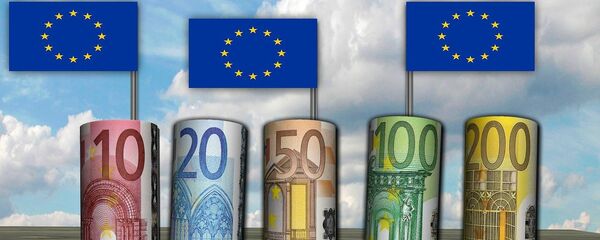Kristian Rouz – The securitization of asset-backed loans and collateral has become increasingly complex in structure and a more daunting venture due to banking sector regulations.
One-off deals are shaping the emerging new landscape of the European fixed-income market, with more stringent terms and higher interest rates effectively offsetting the ultra-accommodative policies of the European Central Bank (ECB). The resulting disruptions in monetary policy transmission to the open market impair its broader sustainability, and gains in economic growth are insufficient to quell concerns regarding potential securities bubbles brewing in the midst of the increasingly complex debt architecture.
“Non-banks are gradually taking greater ownership of the credit system in Europe,” Ganesh Rajendra of Royal Bank of Scotland Group in London said. “The resulting greater ownership of credit assets outside the banking system should see securitization featuring more prominently once again as a refinancing tool.”
The total value of the asset-backed securities market stand at roughly $391 bln, and while regular banks can’t or are unwilling to afford the risks associated with mounting private sector indebtedness, smaller financial services companies are capitalizing on the ECB’s ultra-low interest rates, borrowing at low rates and lending at high ones.
"The market is growing [in terms of the] volume of deals and number of actors, including new specialized investors," Pascale Olivié of Crédit Agricole CIB’s finance division said.
This reformatting of the European debt market could have been seen as a healthy development, if not for the fact that the volumes of new originations exceed the volume of debt refinanced, paid off or otherwise liquidated. Meanwhile, as market volatility is poised to rise, the ultra-low central bank interest rates suppress the yield at low levels, rendering the situation both risky and less profitable.
Aside from hampering business activity, such a situation in the debt market undermines prospects for accelerated growth.
"The term synthetic creates negative connotations among politicians and regulators, because it sounds complex," George Passaris of the European Investment Fund said. "In synthetics there’s a lack of understanding (in the European Parliament) of the differences between balance-sheet securitization and arbitrage deals."
As of April 2016, the Eurozone banks were carrying a burden of 1.014 trln euros in NPLs (compared to 1.114 euro a year prior, but still an astoundingly high number). In Italy, NPLs reached 18pc of all loans, while in France NPLs accounted for only 4pc of total credit. In Spain, the share of bad loans dropped from 9.4pc in 2013 to 6.3pc in 2015 and is declining, while Greece is still hampered with NPLs totaling roughly 30pc. In Germany, the share of NPLs is barely 2.34pc.







